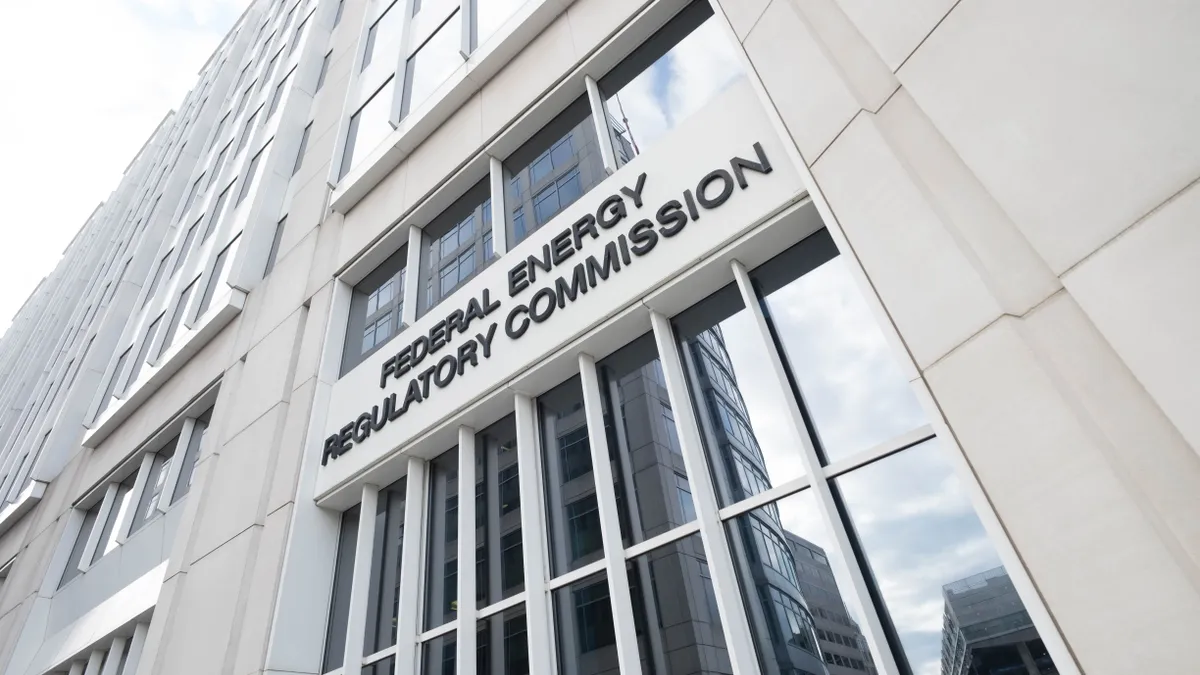Dive Brief:
- The Federal Energy Regulatory Commission (FERC) on Thursday gave its first two approvals to grid operator plans to implement its energy storage order.
- PJM Interconnection will implement most of its plan by Dec. 3, while participating in a separate proceeding to evaluate the fairness of its 10-hour duration requirements for storage to participate in its market. Southwest Power Pool (SPP) will implement its plan in nine months, as FERC regulators approved extra time for the grid operator to implement a new settlement management system.
- While the PJM and SPP plans largely complied with FERC's Order 841, federal regulators created proceedings under section 206 of the Federal Power Act to address their minimum run-time requirement. In PJM's 206 proceeding, regulators will investigate whether the 10-hour "run-time rules and procedures are unjust, unreasonable, unduly discriminatory or preferential as applied to capacity storage resources," according to FERC staff.
Dive Insight:
FERC found the proposals from SPP and PJM would largely enable energy storage resources to provide their full range of services and be fairly compensated given their unique abilities.
But questions remain about potential limits on the ability of storage resources to participate in those markets.
Energy storage advocates have long criticized storage duration requirements made by grid operators, saying high-duration requirements were prohibitive of a lot of battery energy storage systems.
"ESA is pleased to see FERC open a new proceeding on PJM’s proposed 10-hour duration requirement for qualifying energy storage capacity - which ESA has consistently stated is unjust and unreasonable," Kelly Speakes-Backman, CEO of the Energy Storage Association, said in a statement.
While regulators did not raise concerns with SPP's minimum run-time requirements, FERC directed SPP and PJM to include such requirements in their tariffs. The market operators will have 45 days from the publication of the draft orders in the Federal Register to submit tariff provisions, as "such requirements affect rates, terms and conditions of service," FERC staff said during the commission's open meeting on Thursday.
SPP had previously asked regulators for an unspecified amount of delay to implement Order 841, as its new system managing SPP initiatives and member requests goes live in the fourth quarter of 2019. ESA and other storage advocates had requested that the operator issue a deadline date and FERC found the nine-month delay reasonable.
PJM is also allowed to propose further compliance dates for specific components of its implementation plan, although the 206 proceeding will be on a separate timeline.
PJM wrote FERC on Oct. 8 requesting approval of its Order 841 plan by Nov. 3 so it could meet the commission's Dec. 3 deadline to implement the order. Regulators have also been pressed to act by the Midcontinent Independent System Operator.
FERC Chairman Neil Chatterjee said Thursday the complexity of Order 841 is "one of the reasons it took this long to get to it."
"These are really, really complex, challenging issues."














